Posted: 14/02/18
African adventures are experience of a lifetime
Learning about the impacts of tourism, cooking in a prestigious chef competition and canoeing in the steamy mangroves were just some of the activities that students from West Nottinghamshire College took part in on a life-changing visit to The Gambia.
-
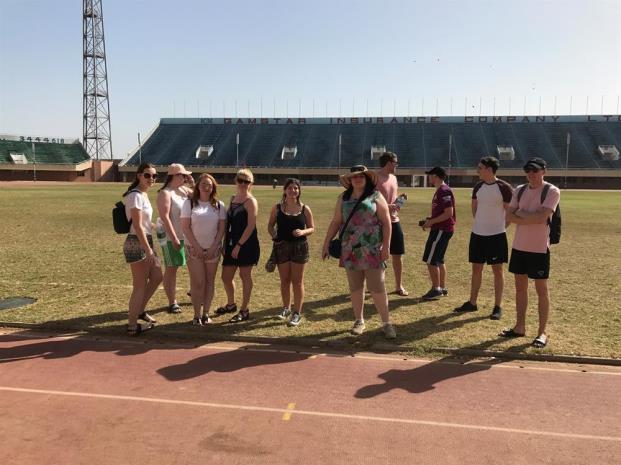
Visiting the international stadium
-
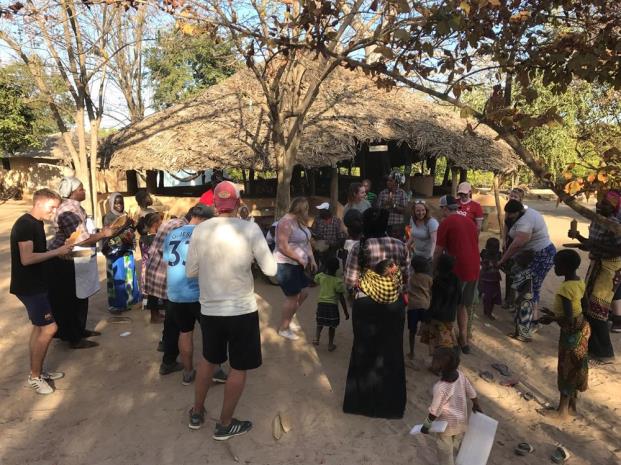
A warm village welcome at Tumani Tenda
-
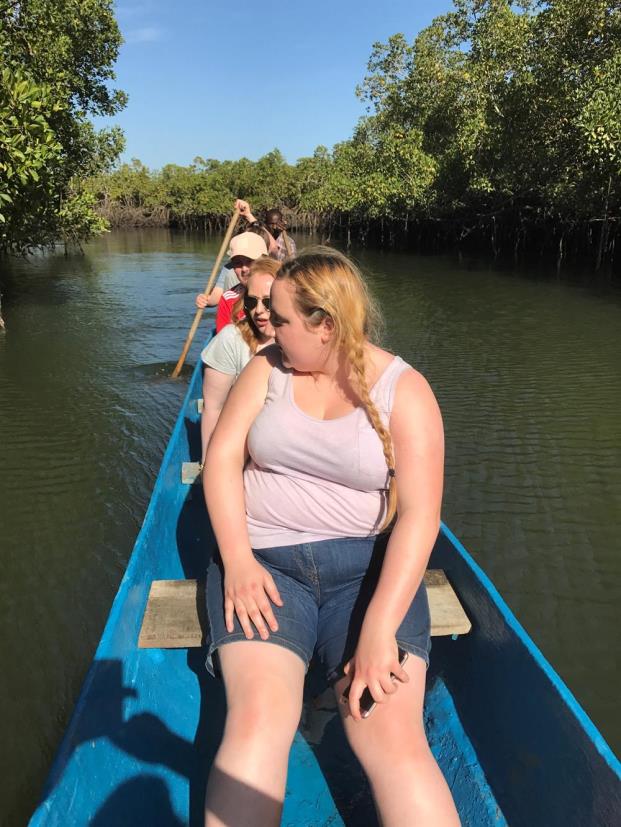
A leisurely canoe ride around the mangroves
-
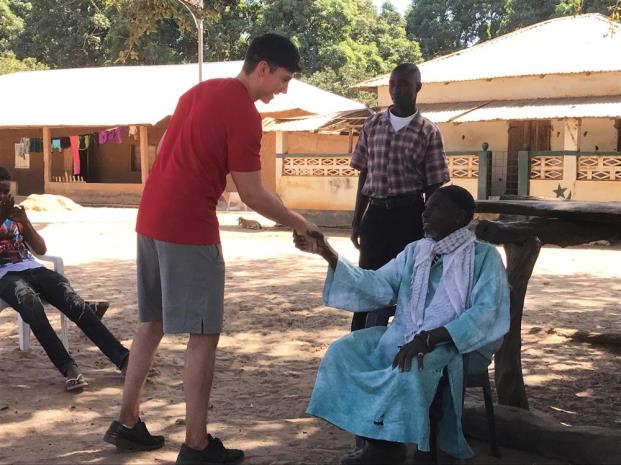
Meeting the chief in Tumani Tenda
-
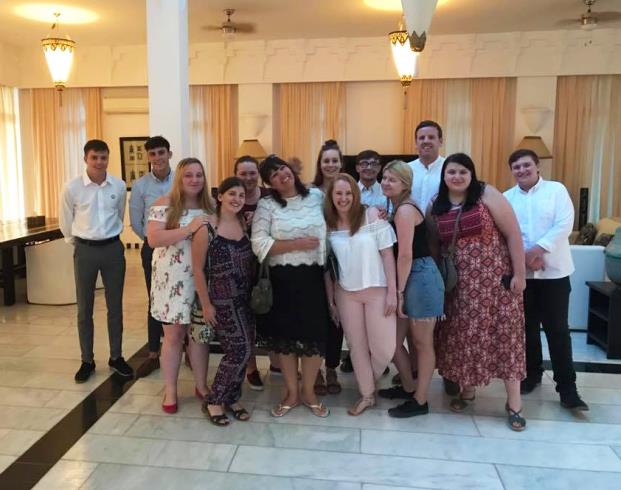
Happy times visiting the Ocean Beach resort
-
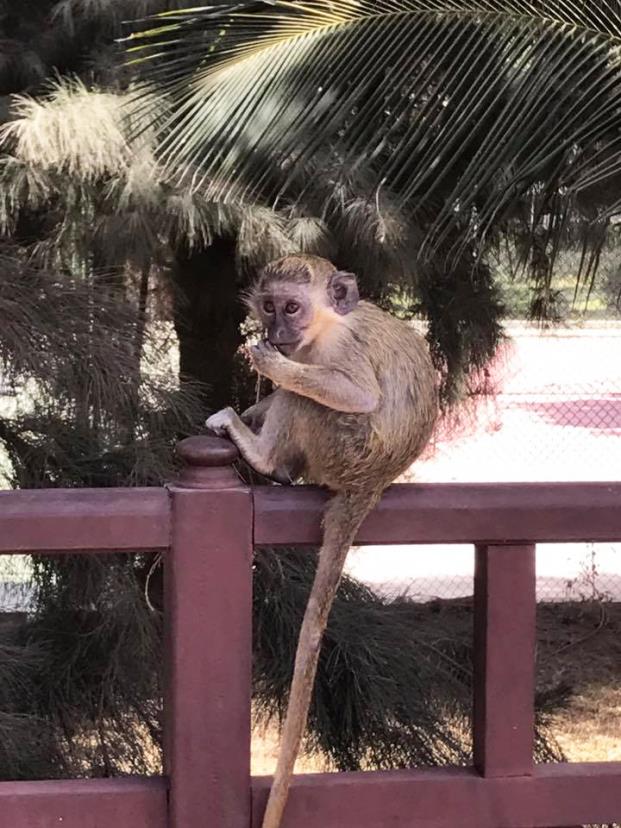
Monkeys waited for guests to leave fruit
-
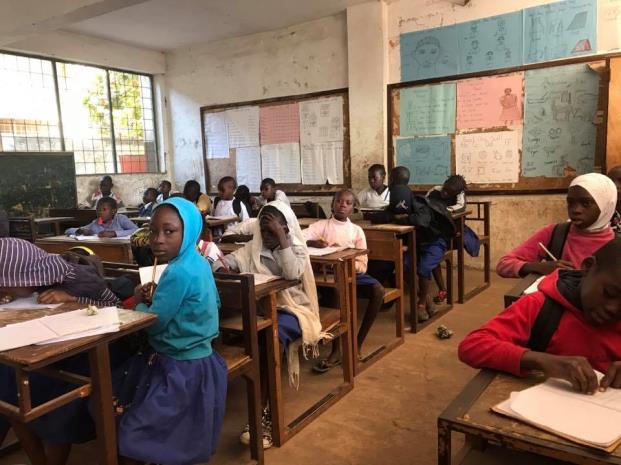
Children in the basic classrooms
-
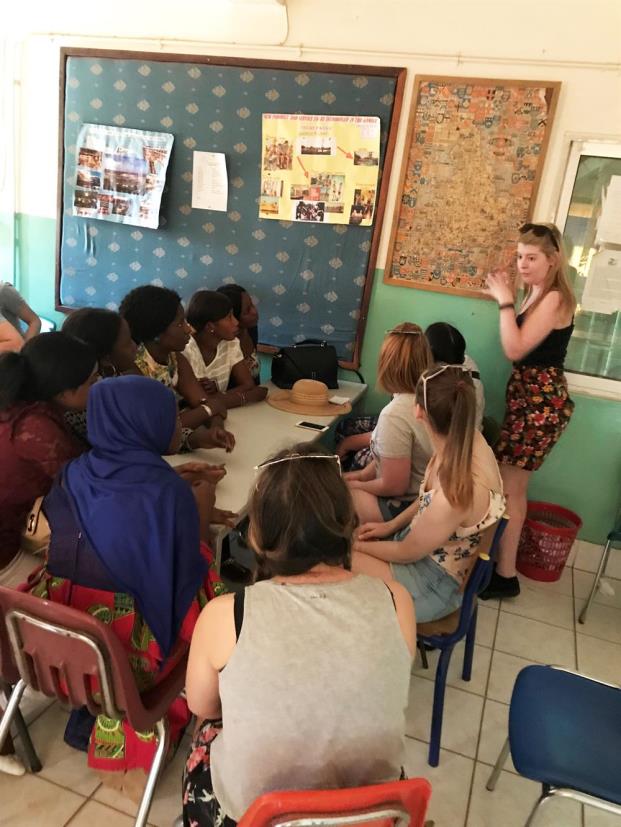
Hayley Watkins teaching at Bakoteh Annex Lower Basic School
-
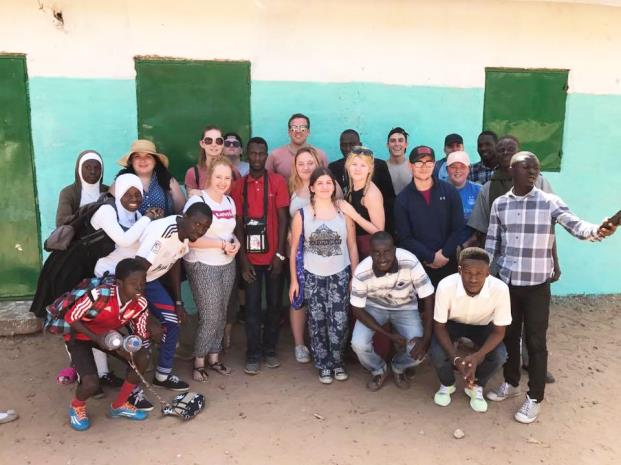
Saying goodbye to children and staff after spending a day teaching in the classrooms of Bakoteh Annex Lower Basic School
-
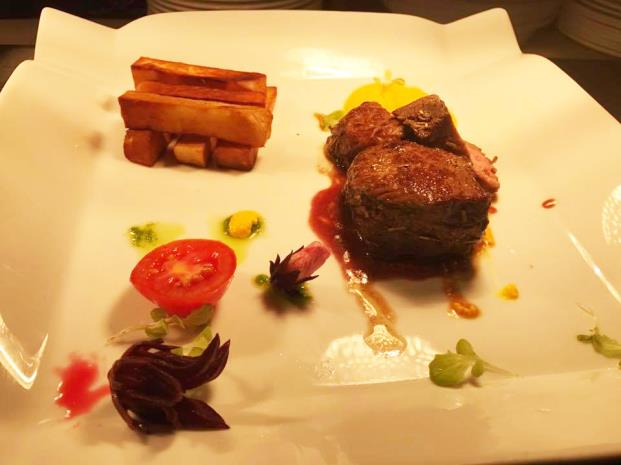
The dish which put Nathan Kirby in 2nd place at the competition
-
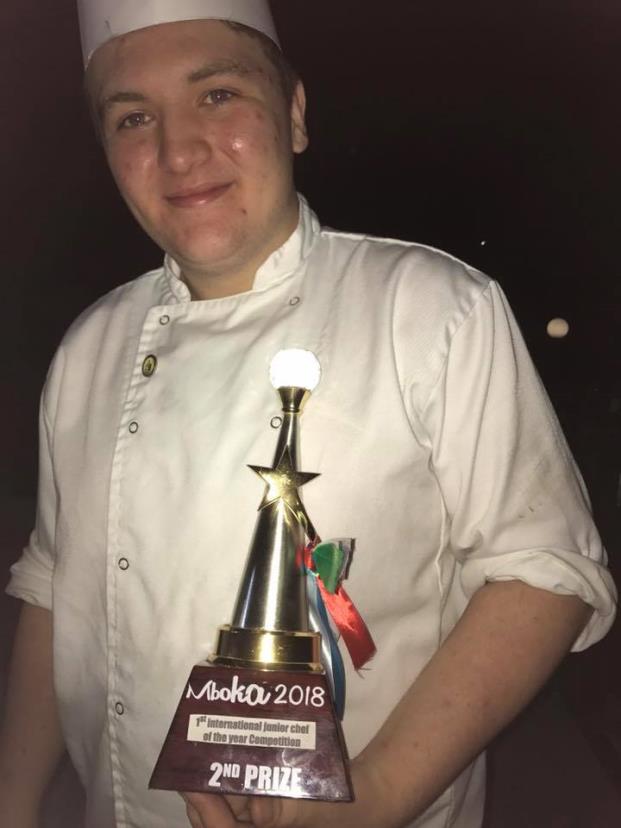
Nathan Kirby with his second place award in the first international junior chef of the year competition at ITTOG
-
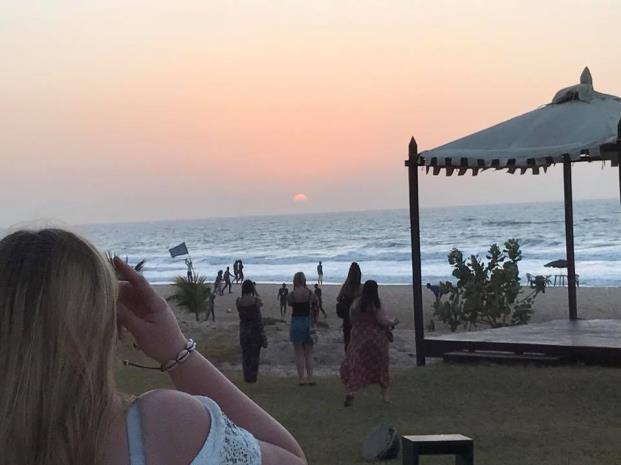
Ocean Beach at sunset
-
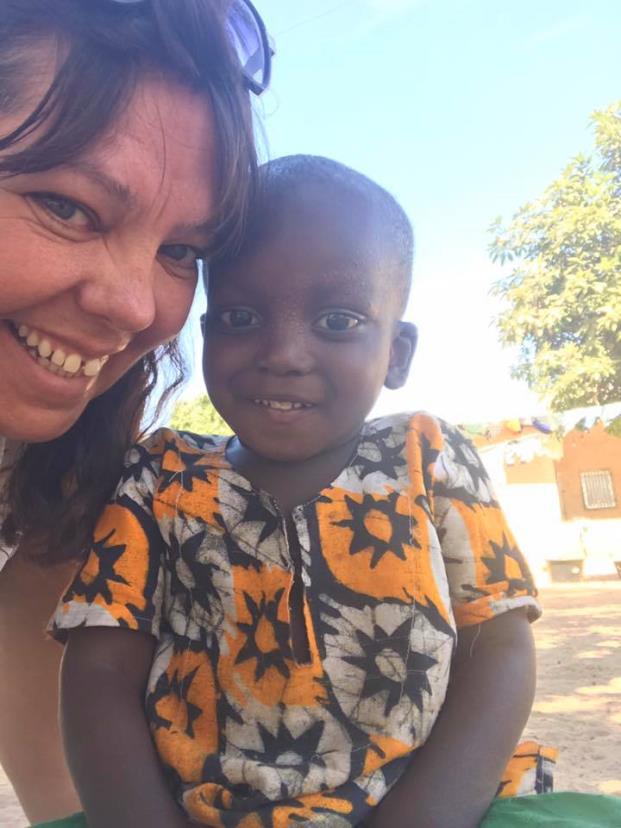
Curriculum manager Helen Wilcockson with a young friend
-
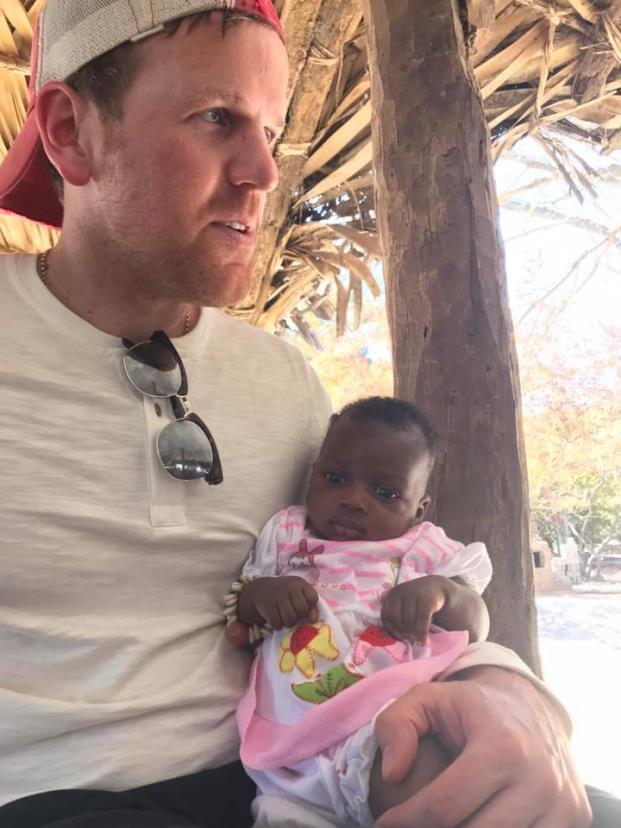
Tutor Ben Ashdown with the youngest member of Tumani Tenda village
The week-long visit in January centred around curricular activities for the students who are currently studying on tourism, catering and sports courses.
Basing themselves at the Senegambia hotel, one of the first places to visit was The Institute of Travel and Tourism of the Gambia (ITTOG) which was established in 2008, and delivers accredited training programmes in travel and tourism to the people in The Gambia.
Tourism and event management student Amber Crampton said: “Seeing how the students work at ITTOG was very interesting. Their classroom setting is very different to ours – they have very standard chalkboards and equipment.”
“We asked them their thoughts on tourism to help us with our assignment which looks on the impact of tourism of that area and how sports tourism can be better promoted there. It was good to find out about their culture too.”
Wild things
April Cheshire was surprised at the variety of wildlife. The tourism student said: “Even our journey from the airport was eye-opening. You’d see cattle and goats wandering around the markets, so many animals roaming free.”
“On Sandele beach, cows mingle with people, getting on with their own lives. There were monkeys looking for food at the hotel, trying to pinch your fruit. They appear because their own park has been demolished to make way for a conference centre. It’s sad and it’s an aspect we looked at for our impact on tourism assignment.
“It was quite scary seeing the vultures on the grass each morning basking and waiting for scraps of food.”
Food for thought
Trying new kinds of food was an adventure for the students. The group enjoyed a number of traditional dishes on nights out and particularly liked chicken domoda, a Gambian dish with a peanut-based sauce. They also liked the multiple uses of the hibiscus flower known as wonjo which is used in desserts and drinks.
Food was very much on Nathan Kirby’s and Sineh McFarlane’s agenda as they both took part in an international junior cookery competition. The professional cookery students were judged by chefs and special VIP guest ministers were also there judging the presentation.
Nathan was successful in coming second. He said: “It was brilliant, I was so proud. I used all my current knowledge and tips I’d picked up while being at the resort hotel. I cooked a mixture of Gambian and English food with a pan-fried fish starter on a bed of veg, then a roast aubergine and roast beef tenderloin in a white wine sauce.”
Both learners won a two-month internship to work in a 5-star hotel when their courses finish at West Nottinghamshire College. Nathan said: “It’s really exciting to think we’ll be working in one of the hotel kitchens. We’re so fortunate.”
Life in the mangroves
The group got to see how an eco-friendly resort operates at Tumani Tenda village. The resort has huts for visitors to sleep in which are built using traditional building methods and a communal eating area overlooking the mangroves and river Gambia.
Tourism and event student Gemma Vasey said: “It was there where we met the village chief. He’s the leader, like a mayor. We all shook his hand and made sure we remembered how to say hello – which is Kasumi Kep. He runs the village, sorts general disputes and pays the village taxes for the 400 people who live there.”
Students admit their eyes were opened wide discovering the whole community of 400 share just one car and they have one very busy midwife at the health centre!
The group enjoyed a canoe ride through the mangroves. Sineh McFarlane (sat at the head of the canoe) said: “The canoe ride was great. We sang our way around to keep us from being scared! It was amazing to see the jungle from this perspective.
“In the main village we were made so welcome. We got to see people’s daily lives in the square where weddings and ceremonies take place with singing and dancing. Everyone seems so incredibly happy – even with so little in their lives. The chief was very pleased with our donation of toys and clothes.”
The group enjoyed some eco-style cooking at the resort, as well as a responsible tourism lesson and some relaxing yoga with a yogi professional.
Teaching the children
Students described their time with the children at Bakoteh Annex Lower Basic School as ‘incredible’.
They presented sports equipment to the school, which blends more than 3,000 primary and secondary children aged seven to 15.
Sport and coaching development student Cory Lightly said: “Often children don’t start school until they’re 10 or 12 simply because parents can’t afford it. It’s then difficult for the older ones playing catch-up.
“The kids loved us being there and at break times they wanted to play sport with us and be our friends. They did a very heart-wrenching performance to us which highlighted the difficult journey across Europe when some people try to leave the country.”
College students had the chance to teach them maths and English classes which the children learnt to remember with the aid of singing.
Nathan Kirby said: “It’s crazy how far these children have to walk to school. It can often take seven hours there and back. It makes you realise just how easy we have it in the UK. We get education easily and have many opportunities that we should never waste.
“They have to pay for education and often end up in very basic jobs with equivalent earnings of just £1 per day. We’re so fortunate we have many opportunities to thrive and do well. We’re hoping to do a fundraising dinner back at West Notts and send some money over to this school.”
Sporting chances
Sports students particularly enjoyed the visit to Q-City, a large leisure facility which has a gym, a pool and a cinema.
Sport tutor Ben Ashdown said: “The new Q-City development is classed as very modern for The Gambia. It’s for the local people to use and it really enhances their social lives.
“We were lucky enough to also meet the former Chairman of the Gambian Olympic committee and the executive director of the National Sports Council Marchel Mendy during a tour of the international football stadium.
“Compared to the UK stadiums, theirs is quite small and it’s used for music events and pop concerts too.”
Life changing
Lifestyle academy curriculum manager Helen Wilcockson arranged the trip to The Gambia, having had a large involvement in opening the ITTOG College ten years ago.
After this visit Helen has noticed some very big changes in her students’ outlooks on life.
She said: “I would say each one of the eleven students who we took to The Gambia have come away more humbled, less selfish and very conscious of how they live their own lives at home.
“Seeing just how happy these people are with so little, really shocked them I think. People in The Gambia are so relaxed and really are happy people and get along so humbly with very little. Our visit gave the students some wonderful life lessons and most have said how life-changing their visit was. Even their parents are noticing the change in their outlook!
“Study-wise, they have taken away some unique and varied information and practical foundations for their learning in the college classrooms. They’ve all said how passionate they are about going back and organising future exchanges with people they met.”
Business and management student Hayley Watkins said: “Coming back home you really do reflect on your own material lifestyle. You question: “do I need dozens of pairs of shoes?” when children there have none at all.”
Something which student Patrick Marshall realised is that after going on the trip he’s improved his confidence: “We often feel nervous about doing something new or different like the visit to Africa. But when you actually do these things and prove you can it changes your mind-set. I’d say try anything, just do it and prove to yourself you can!”